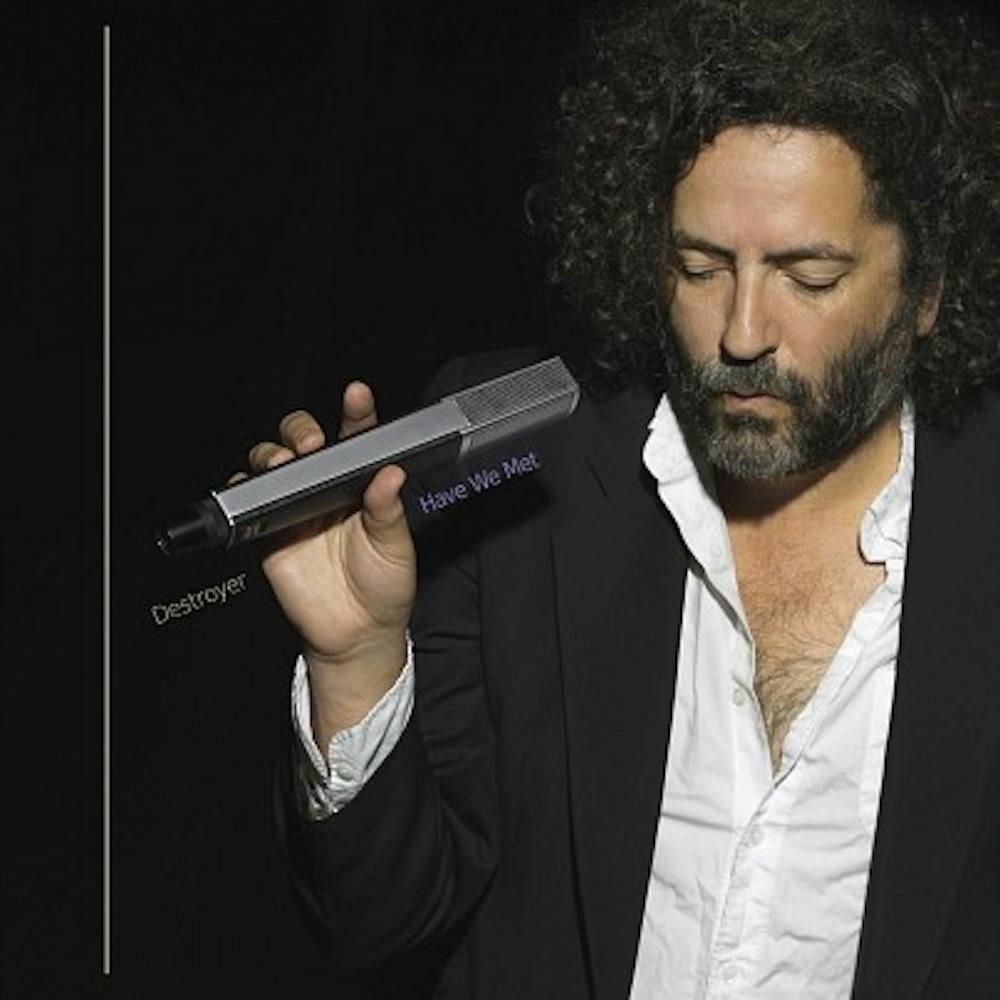Album: “Have We Met”
Artist: Destroyer
Label: Merge
Release Date: Jan. 31
Rating: 6/10
It feels like an eternity since Destroyer released its sophisti-pop masterpiece “Kaputt.” The soft, crooning and poetic stylings of the album were seemingly at odds with the rest of the music scene; a time when LMFAO’s “Party Rock Anthem” was dominating the pop charts and groups like The Black Keys and Bon Iver were just bursting onto the alternative music scene.
Since then, Destroyer’s introspective approach to music has only become more reminiscent of the mainstream, which saw itself becoming more downtrodden, anxious, slow and influenced by the digital production of the 1980s.
Destroyer, which is masterminded by singer Dan Bejar, seemed to have a chance to solidify itself in the mainstream with “Have We Met,” but that isn’t the case.
From a production standpoint, the album is characterized by highly-digital sounds. There are no real drums to be found and other than Bejar’s vocals and the occasional guitar or bass, the record is completely dominated by retro-sounding drum machines and synthesizers. More than anything else, “Have We Met” is a full-blown synthpop record.
This choice is easily the strongest positive of the album. The consistent sound allows the album to have a defined mood and more often than not, the instrumentals are catchy. They don’t seem to outright steal from the ‘80s, as it sounds more modern than the old songs it’s clearly inspired by, but the influence of the era is undeniable. The album often sounds like modernized renditions of mid-80s David Bowie and Tears For Fears.
Bejar’s distinctive higher-register voice is an acquired taste, but his constant confident presence and witty delivery on nearly every song here further cements the strong mood that the group is trying to establish.
At points these aspects combine to make legitimately catchy songs, too. The best example of that is on opener “Crimson Tide,” where Bejar croons vaguely lovelorn lines like “I know when to hold ‘em, and I know when to leave, I know where to go, I know how to breathe” over a driving beat, a crisp bassline and distant pianos. This, along with similar highlight “It Just Doesn’t Happen” sounds like music made directly for Urban Outfitters (in a good way).
Another highlight, “The Man in Black’s Blues” is the most ‘80s-worshipping cut on the record and sounds straight out of a John Hughes film. The entire song is legitimately catchy and it showcases this album’s potential at its strongest.
Unfortunately, the album is deeply flawed. Bejar, while completely settled into this role of an ‘80s-indebted, lovesick and witty crooner, doesn’t completely nail his role on several tracks. It is obvious that he wants to come across as charming on a great deal of these songs, –– just look at the album cover trying to scream “sultry” –– but sometimes he just comes across as unsuccessfully attempting to be the next Bowie.
Most of the lines on the album are delivered in a hushed register and manage to sound high-pitched and low-pitched simultaneously. It’s intriguing and certainly distinctive, but sometimes the nearly-spoken-word quality and Bejar’s jagged delivery comes off as totally awkward.
This also results in him not being able to carry the more bland cuts on here. “The Television Music Supervisor” meanders without a point for its four-minute runtime while he repeats lines like “Clickety click click, The music makes a musical sound.” There are also a number of songs like “University Hill” that are too similar to other, superior cuts like the aforementioned “Crimson Tide.”
By the time closer “Foolssong” rolls around, the group seems to have emptied its reserve of ideas for its new synthpop sound. It is one of the more relaxing cuts but showcases everything good and bad about “Have We Met.”
The outro of the song, with the repeated vocal melody of “It ain’t easy being a baby like you, and it ain’t easy being a baby like me” is one of the stickiest on the entire album. The strange dissonant chorus and synth effects that follow are strange, somewhat horrifying but also bold and interesting. But the first three minutes of the song are a rhythmless slog that leave the listener just waiting for the second half to come.
It is hard to imagine Destroyer making another album like this, and that is both a good and bad thing. As it is, “Have We Met” is an intriguing, sometimes catchy but deeply flawed work that could become something great with another attempt. At this point though, it may just be fruitful for Bejar and the rest of the group to do what they normally do and explore a new sound next time around.
Alex Whetham is the senior arts editor and can be reached at Alex.Whetham@ubspectrum.com and on Twitter @Alexo774.
Alex Whetham is an asst. arts editor for The Spectrum.





